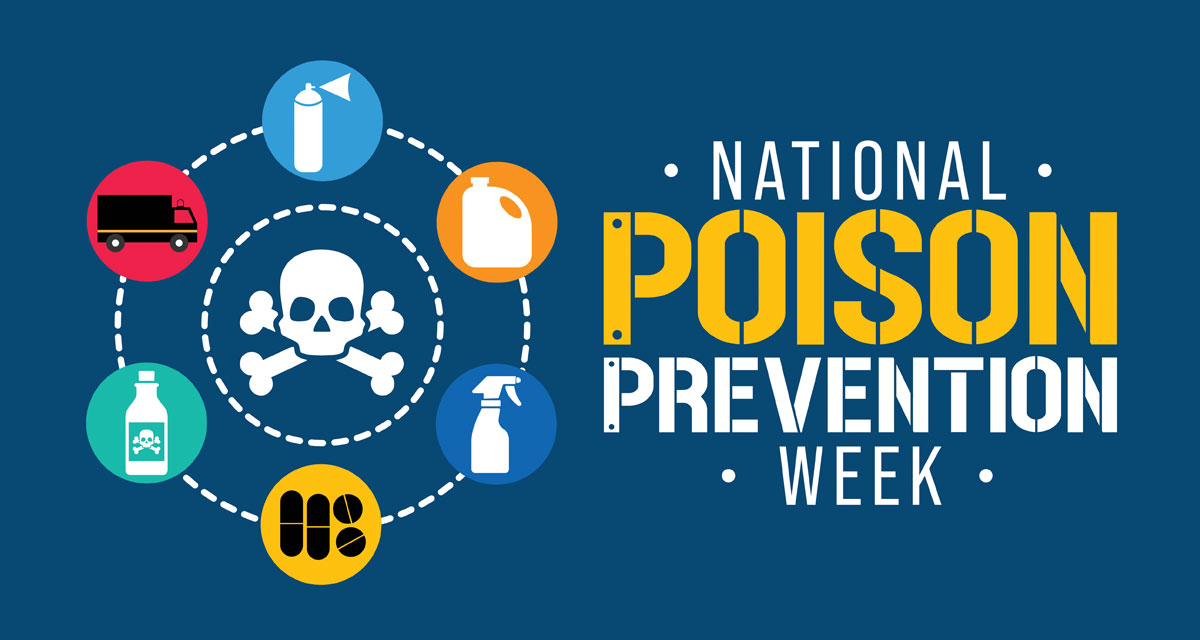Each month, this series will provide important facts and tips surrounding child safety in an effort to support parents and caregivers as they navigate reducing risks and creating the safest environment possible for the children in their lives.
While we may not think about it daily, poisoning is one of the leading public health problems. The United States Department of Health & Human Services noted March 21st-25th as National Poison Prevention Week in an effort to educate the public on ways they can help reduce risks and respond to poison related injuries and death. In honor of this week, we’re sharing simple tips on how to identify risks, learn how to keep your little ones safe and what to do in case of a poison related emergency.
Understanding the Risks
In the United States, on average, a poison control center receives a new encounter involving a human exposure about every 15 seconds, with children under the age of six involved in 43% of poisoning exposures according to NC Poison Control. The highest exposure sight for children to poisons is in their home. While this can sound scary, it’s also a positive fact because it means there is an opportunity for parents and caregivers to educate themselves and make choices that support poison control safety. Understanding some of the biggest risks to exposure is the first step in creating a safe environment.
As of 2019, cosmetics and personal care products were the most frequently involved substances in pediatric (five years and younger) poisoning exposures. Bathrooms, purses, countertops, cabinets and nightstands are frequently left accessible to young children where little hands can get into these products.
Substances leading to poison related incidents within households include the following:
- Carbon Monoxide Poisoning
- Prescription Medicines
- Non-Prescription Medicines
- Cleaning Products
- E-cigarettes
- Food Poisoning
- Glow Sticks
- Hydrocarbons (kerosene, gasoline, oils, etc.)
- Lead Poisoning
- Mercury (thermometers)
- Mothballs
- Silica Gel
- Poisonous Plants
- Insect Sprays
- Week Killers & Outdoor Substances
Protection, Supervision & Education
As adults, it is imperative that we look at our homes, vehicles and other surroundings through the lens of making them as safe and healthy for our children. Start by going room by room in your house, including the garage and backyard to see what opportunities you see for potential risk. Make sure all cleaning supplies and harmful substances are locked up with child safety features to limit exposure. Try to include child safety caps on all medications purchased and other bottles, understanding that these caps aren’t foolproof but a helpful measure of security. Be careful when using medicines, cleaners and other poisons, paying close attention to putting them back when you’re done using them and always keeping them closed.
Since most poisons that have the potential to hurt children are products that we use in our daily lives, it’s important to incorporate prevention habits and educate children of all ages. Explain the risk to your child and show them which areas or products are off limits and dangerous for them. Even kids as young as one can benefit from age appropriate awareness.
Taking Action When an Emergency Occurs
In the unfortunate event that your child accidentally ingests or comes in contact with a harmful substance, you should seek help immediately, even if you aren’t 100% sure of the severity of the issue. Always check the condition of the child, call 911 first if immediate help is needed and do your best to identify what poison was ingested or applied. If you have questions or need advice, you can get immediate assistance from a nurse, pharmacist or other poison expert by calling the Poison Help Line at 800.222.1222. This helpline is available 24 hours a day, seven days a week with access to knowledgeable assistance in more than 100 languages, and we highly recommend saving this number as a contact in your phone.
Helpful Resources to Learn More
- HRSA Health Resources & Service Administration:https://poisonhelp.hrsa.gov/}
- Poison Help Line: 800.222.1222 connects you to your local poison center























